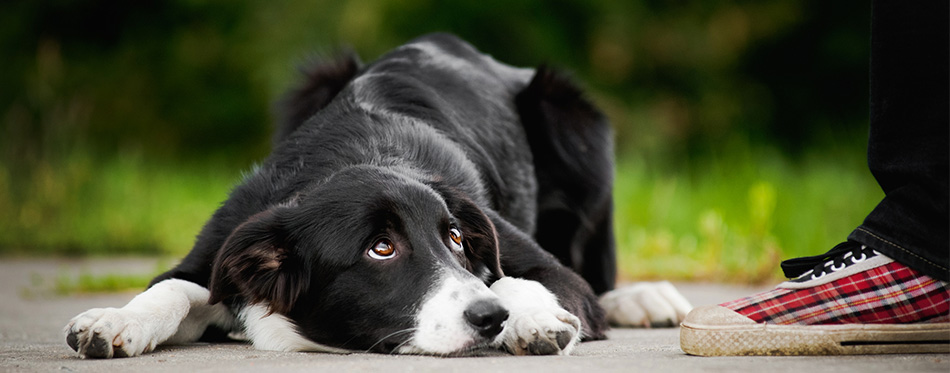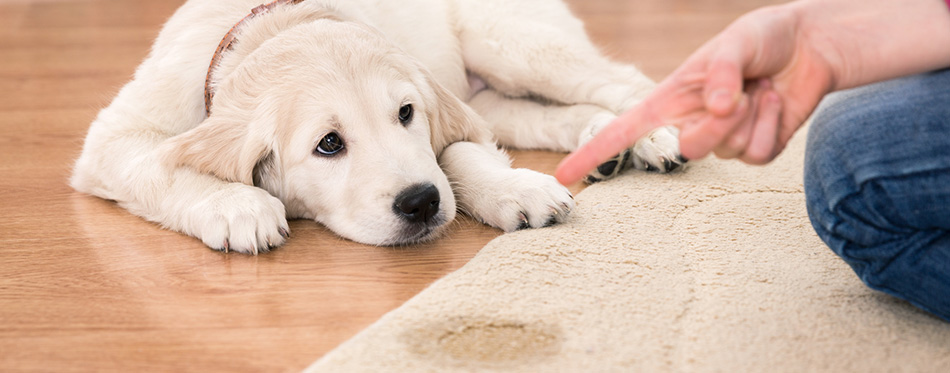Understanding puppy behavior is a challenging task which only gets easier with time and experience. Although, even with time, experience and training, canine behaviors can remain a mystery as there is simply no way to know for sure what your precious pup is thinking. You might often be left wondering what your pooch is thinking after they do something strange or make some funny sounds. You might even look for an explanation for some behaviors from a vet, animal behavior expert or simply by looking online. The curiosity puppy parents have about our pups often comes from a desire to make sense of behaviors or feelings that we think our pups might be experiencing.
An unpleasant but fairly common feeling we may experience is embarrassment and as pup parents, it’s normal for us to wonder if our pets can feel it too. In this article, we’re going to take a closer look at how we can monitor or comprehend puppy behavior through understanding if our canine companions are capable of feeling embarrassed. So, if you’ve been wondering ‘can dogs feel embarrassed?’ then we’ll do our best to answer this question for you today.

Understanding Canine Emotion
Understanding and deciphering canine behavior and its meanings can be a straightforward or complex issue depending on the specific behavior in question. While ‘simple’ emotions or behaviors can easily be understood through body language or vocalizations, more ‘complex’ feelings (such as embarrassment) aren’t as easy to spot. Simple emotions such as happiness or sadness can be seen through tail wagging positions and speeds or through sounds like whimpering, yelping, barking or howling. They are also usually matched with other behaviors like enthusiasm in happy dogs or lethargy/disinterest in sad pups. However, when it comes to complex behaviors, these aren’t as easily noticeable. Since the behaviors aren’t obvious to us, many animal behaviorists and experts doubt that dogs are capable of feeling more complex emotions.
Director of Behavior Services in the Boston Behavior Department at MSPCA/Angell, Dr. Terri Bright, highlights the issue that dogs might simply not experience the same emotions as humans: “For a dog to feel embarrassment, they would need to possess an overall sense of social norms and morals, which they don’t have the same way humans do”. While Dr. Bright doesn’t claim that it’s impossible for dogs to feel embarrassment (or some kind of canine equivalent), she emphasizes that embarrassment is fundamentally a human emotion and that there is no definitive way to prove it exists in canines. So, trying to understand if dogs are capable of feeling and showing embarrassment might not be the most productive task. Instead, we could try to understand how animals feel and in what way are these emotions presented. This is in an attempt to stop anthropomorphizing – a common activity us humans like to do which involves pushing our own characteristics and emotions on to non-human beings such as animals or inanimate objects. This kind of behavior is popular with almost all pet owners as we try to explain how they might feel by using human emotions.
Anthropomorphizing (or personifying) emotions onto dogs is particularly noticeable today on social media where ashamed dogs are recorded after doing something wrong in the family home. It’s not difficult to find videos of supposedly embarrassed dogs being jokingly mocked or scorned after tearing apart their owner’s cushions, carpets or clothes, or of dogs that have been dressed up by their owner and look embarrassed to be seen. These videos show behavior that might look like doggy embarrassment but in fact, it’s likely to be a behavior which results from the way they’re being spoken to, not embarrassment about the situation. This, in part, stems from a common urge to relate our pets to us, including our emotions and feelings. Dr. Bright continues, “people are invested with the idea that dogs are just like them, and they give human attributes to dogs all the time. It’s most likely that dogs described as being embarrassed by their owners are dogs that are actually a little nervous or afraid because the people around them are behaving in a way that makes them feel uncomfortable.” So, when dogs seem to be embarrassed its most likely that they’re displaying another type of behavior, whether that be nervousness or something else, and not actually embarrassment.
How to Measure Canine Emotion
You might be wondering; how do we know that dogs don’t feel embarrassment? Or, how do we know that dogs feel emotion at all? This is where things get even more interesting. Canine behavioral experts aim to prove that dogs can feel and communicate emotions through various tests. Most commonly, behavioral tests take the form of participatory studies where dogs and their owners carry out a scenario in a lab where responses can be measured and compared. Similarly, studies are carried out on animal vocalizations to understand how animals react to specific scenarios. Through these types of studies, canine behaviorists can begin to correlate specific actions and vocalizations with how dogs respond to scenarios, giving an indication to what they might be feeling.
While these types of studies have revealed a lot already, research into canine behavior and cognition is a developing science and has a long way to go. Maria DeLeon, Dog Behavior Consultant from Mercer County, New Jersey, writes: “We’re only now getting into canine cognition as a science and I think that is why people are hesitant to interpret an emotion…There’s not a lot of research so far”.

In Short: Can Dogs Get Embarrassed?
By this point you might still be wondering if dogs can feel embarrassed or if they experience a similar feeling. DeLeon puts it simply, “I don’t believe we can say either way, but I don’t believe dogs feel embarrassment,” however she also writes that since we have no conclusive evidence or way to prove otherwise, “it is essential for us to keep an open mind”. In short, canine scientists and behaviorists have no concrete proof that dogs are capable of feeling embarrassed but we know they feel other emotions. It’s our job to look after our canine companions by treating them with the love and respect that they deserve to keep them happy and healthy.
Source:
- Can Dogs Feel Embarrassed? – PetMD

